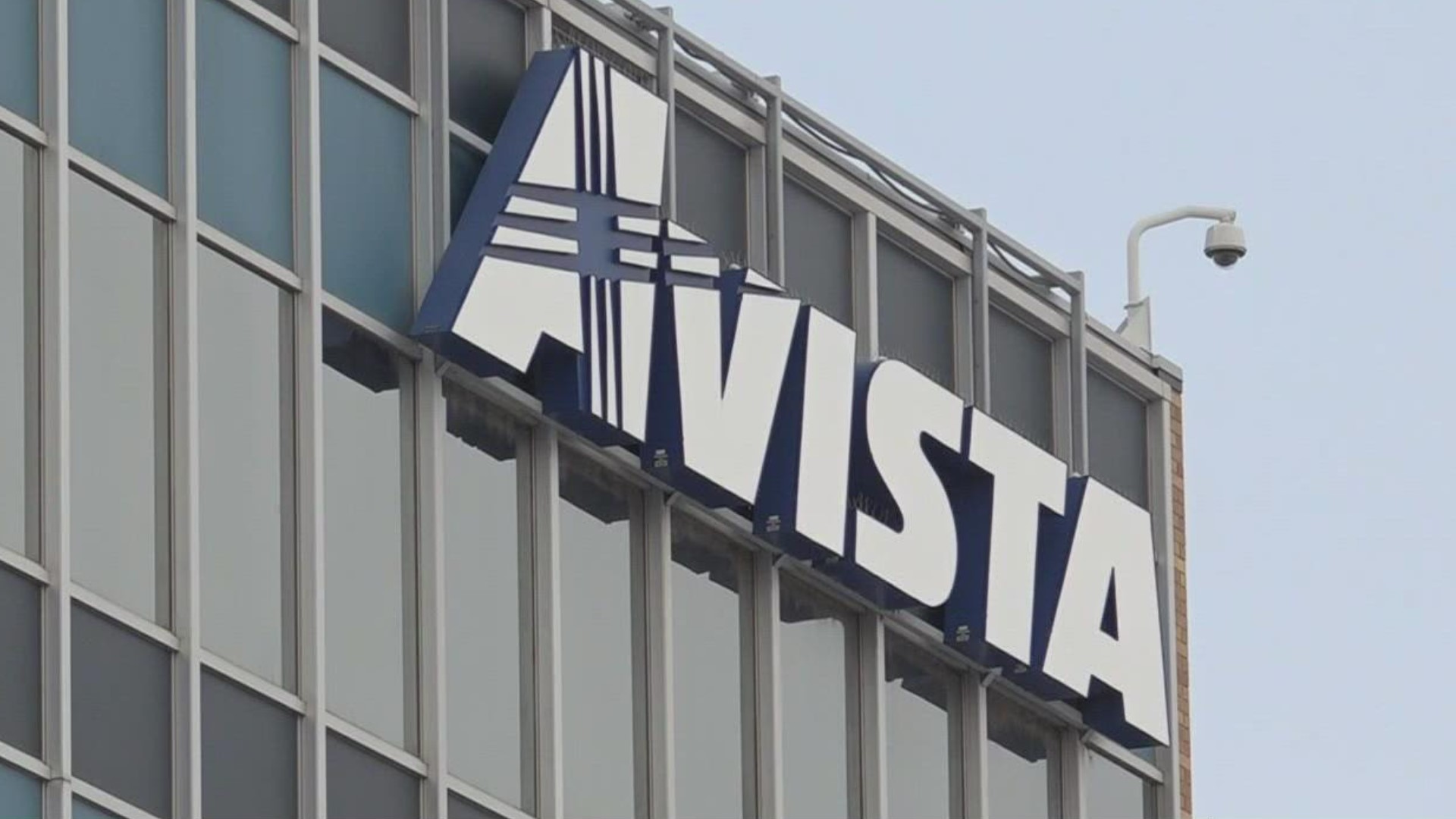SPOKANE COUNTY, Wash. — Avista announced Friday that the company filed a two-year rate proposal plan with the Washington Utilities and Transportation Commission (WUTC) to recover infrastructure investments costs, which, if approved, will increase electricity costs in Washington households.
Avista is proposing a 7.9% increase for electric rates in 2022 and an additional 3.1% increase in 2023 -- so an 11% hike over the next two years. Natural gas customers would see a 3.4% increase for 2022 and 2023.
If approved, new rates would be effective in Dec. 2022 and Dec. 2023.
According to the Avista website, the plans aim to recover costs for fixed expenses and ongoing investments such as in infrastructure and technology.
If the plan is approved, Avista users that spend an average of 932-kilowatt hours per month could expect their electricity bill to increase by 7.9% or $6.52 by December 2022, and an increase of 3.1% or $2.80 by December of 2023.
The increase will also apply to the cost of residential natural gas if the plan passes. Customers using an average of 67 therms monthly could expect to see a total billed increase of 2.4% or $1.54 for December 2022 and an increase of 1.1% or $0.75 for December 2023.
The electric rate request is designed to increase annual base revenues by $52.9 million (or 7.4% on a billed basis) effective in Dec. 2022, and $17.1 million (or 3.0% on a billed basis) effective in Dec. 2023.
The natural gas general rate request is designed to increase annual revenues by $10.9 million (or 2.5% on a billed basis) effective in Dec. 2022, and $2.2 million (or 1.1% on a billed basis) effective in Dec. 2023.
The electric and natural gas requests are based on a proposed rate of return (ROR) of 7.31%, with a common equity ratio (CER) of 48.5% and a 10.25% return on equity (ROE).
"In fact, the total average monthly cost of Avista’s residential electric service is almost 40% lower than the national average for investor-owned utilities," Avista President and CEO Dennis Vermillion said. "Our customers remain our primary focus as we make decisions about how and where to invest across the company.”
Vermillion said that despite the rising costs, the company is looking for ways to keep rates affordable.
"The Residual Tax Customer Credit would offer a total of $38 million in estimated benefits to be incrementally returned to electric and natural gas customers over two years," Vermillion said.

